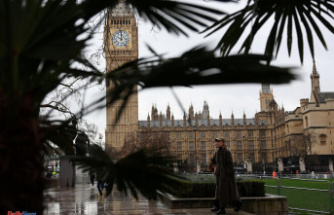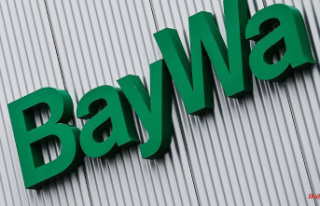Where soldiers from the Russian army were on duty until the mid-1990s, holidaymakers should be able to enjoy their holidays in the future. A large part of the Pütnitz peninsula is to be developed 30 years after reunification. But the project is controversial.
Ribnitz-Damgarten (dpa/mv) - The course for the construction of a holiday resort is being set on the Saaler Boden. It is about the Pütnitz peninsula, which was also used by the Soviet army in the past, and a 250-hectare area. And a total investment of around 350 million euros.
The city of Ribnitz-Damgarten owns the area. The city representatives of the municipality, which has around 16,000 inhabitants, decide whether development plan no. 109 "Special area for tourist development on the Pütnitz peninsula" should be drawn up.
From the purely formal procedure, this is the starting signal, but at the same time the result of years of work, says Mayor Thomas Huth. The purpose of use is in principle undisputed. "Since 1994, since the Russians left, the direction has been towards tourism," says Huth.
The main investor is the amusement park operator Center Parcs. Pütnitz is to be its seventh plant in Germany. In addition, Supreme GmbH (Rostock) wants to create a sports and adventure world ("Pangea Island"). The Bernsteinreiter are planning another horse farm, and the existing technology museum is also part of the concept. The capacity is 3200 beds plus 300 camping pitches.
The project is of immense importance for Ribnitz-Damgarten. The mayor argues that it is simply to maintain its function as a medium-sized center. This requires some growth. "Otherwise, at some point, the last health insurance companies will go away, the last specialists, the last banks and the bus will no longer run. We need a certain amount of growth - doing nothing is not an option."
But he also knows about the dimension of the project. "We assume that we will have a legally binding development plan, i.e. building rights, by 2024 at the earliest." Steffen Schmidt finds this schedule optimistic. "It's a huge project and incredibly complex," says Schmidt, who would prefer not to see the development plan implemented at all. He fights against the project with the citizens' initiative "Pütnitz - No mass tourism". Supporters and opponents give little.
Both sides accuse each other of either deliberately falsifying or withholding information. The mayor speaks of unfair behavior, the citizens' initiative of deliberate deception and an imminent "grave of millions". Huth criticizes that the opponents repeatedly propagated the wrong number of 800,000 tourists a year, although it was the number of overnight stays. "It's beyond annoying."
On the other hand, Schmidt, who describes the overall situation as "politically stable", criticizes the fact that the city is assuming 3,200 beds, although the number is 4,500. "We also count the sleeping possibilities of the planned camping pitches." There is a threat of traffic collapse, and overall communication is not transparent.
Economics Minister Reinhard Meyer (SPD), from whose house funds are to flow, makes no secret of his support for the project. But he also said last week in Rostock that the discussion about it was necessary and had to be conducted openly. Anyone who talks about quality tourism must also ask how employees in the industry and the people in the tourist areas can be taken along.
In any case, those affected in the region will have plenty of opportunity in the coming months to deal with the pros and cons of the project on Pütnitz. The city council's approval of the installation decision is considered certain on Wednesday. An on-site information event is planned for November 13.












